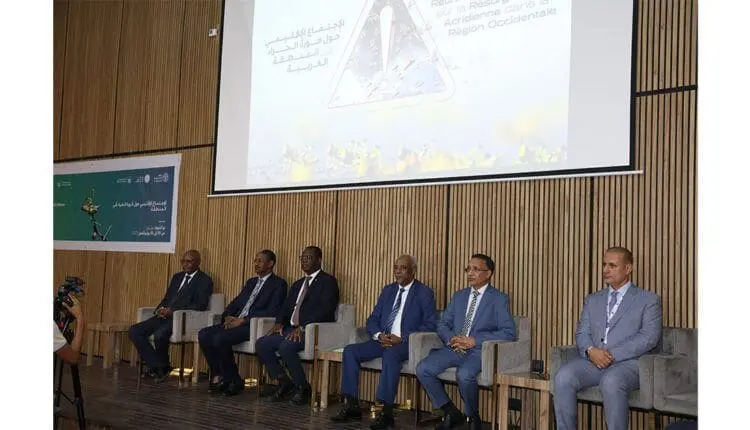
Mauritania is playing host to a critical regional summit focused on curbing the threat of desert locusts, as agricultural experts and government officials gather in Nouakchott to assess the current situation and forecast the challenges of the 2025 season.
The high-level meeting brings together specialists from countries that are part of the Commission for Controlling the Desert Locust in the Western Region (CLCPRO), under the auspices of the UN’s Food and Agriculture Organization (FAO).
The primary goal is to strengthen early warning systems, coordinate cross-border efforts, and minimize the devastating impact of locust swarms on food security in the region.
“This meeting reflects Mauritania’s central role in the fight against locusts, and the appreciation it enjoys within the regional and international community,” said Mohamed Yahya Ould Mohamed Mahmoud, Advisor to the Minister of Agriculture.
The summit comes amid growing concerns over the resurgence of locust swarms fueled by climatic shifts and unstable rainfall patterns, which threaten already fragile food systems across the Sahel.
Speaking at the opening session, FAO Representative Jean Senahen emphasized the urgent need for collaboration.
“Controlling the locust outbreak is a top priority to ensure food security and address malnutrition,” he said.
He warned that “agricultural pests, particularly the desert locust, pose a serious risk to rural populations.”
Desert locusts are among the most destructive migratory pests in the world, capable of traveling hundreds of kilometers a day and consuming vast quantities of crops, leaving entire communities vulnerable.
The Nouakchott summit is expected to produce a regional roadmap for surveillance, rapid response, and long-term prevention strategies—offering hope that coordinated action can avert another major food crisis in West Africa.



